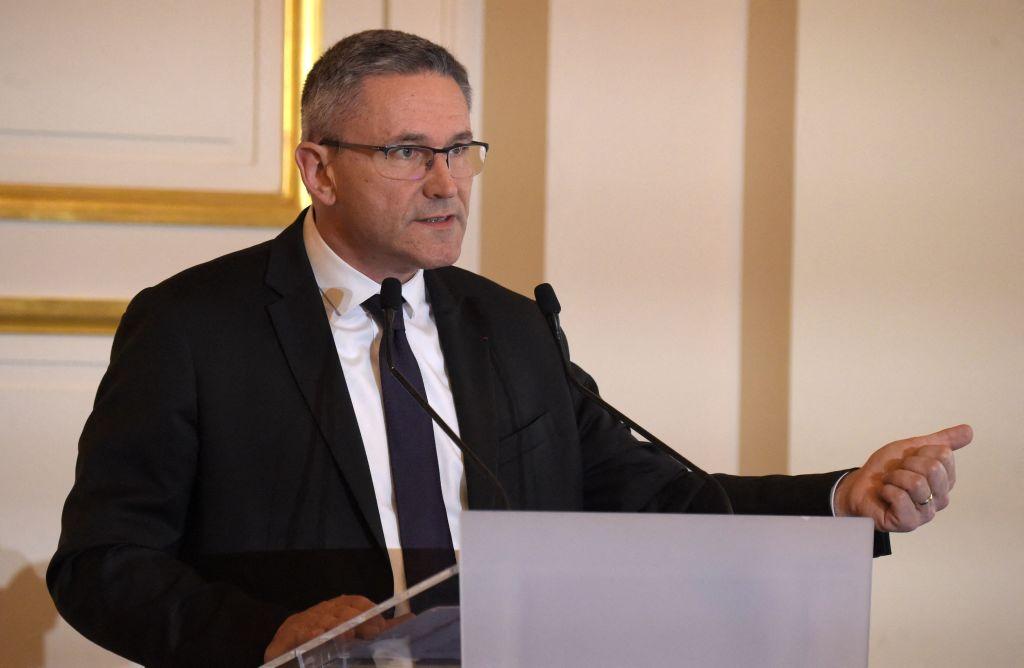
MBDA CEO Eric Beranger says the company is committed to its three-stage hypersonic interceptor Aquila.
PARIS—MBDA is to explore other avenues in pursuit of its development of a missile interceptor capable of dealing with hypersonic targets, CEO Eric Beranger says.
The European missile company began developing the three-stage Aquila interceptor eyeing a place on the European Permanent Structured Cooperation (PESCO) project Twister—short for Timely Warning and Interception with Space-based TheatER—which aimed to provide a European system to deal with complex missile threats, including hypersonic weapons.
The missile company had hoped that its work on Aquila might secure it a place on a €100 million ($106 million) European Defense Fund-supported research and development project known as the European Hypersonic Defense Interceptor (HYDEF).
However, MBDA failed to secure work on HYDEF when the winning consortiums were announced last summer, with the European Union instead opting for a team from seven countries led by Spain’s Sener Aerospace and supported by companies including Germany’s Diehl Defense and Norway’s Nammo.
Nonetheless, “We intend to continue to work on this [Aquila] project,” Beranger told journalists as the company announced its 2022 results here March 15. “I think we [Europe] need protection against hypersonics, and we believe in the progress we have made, and think we should continue.”
He said the company’s work on hypersonics over the last 20 years has given it a good understanding of how to defend against the threat, adding, “We have something we can bring to the table.”
Work on Aquila is in the concept stages in the company, and Beranger acknowledges that bringing the missile system to market would cost “billions” of euros and need strong government support from partner nations.
The HYDEF work—expected to last three years—calls on the Sener-led consortium to undertake concept work, risk mitigation and ultimately the demonstration of a cost-effective endoatmospheric interceptor that is able to operate in what EU officials call “different air levels.”
The interceptor is expected to feature new aerodynamic and actuator systems for high maneuverability, as well as agile guidance concepts and advanced sensor and seeker systems.
The PESCO Twister project includes Finland, France, Germany, Italy, the Netherlands and Spain. But three of these countries have since joined the Germany-led European Sky Shield Initiative, for which Germany is proposing the Israeli Arrow 3 system exoatmospheric interceptor for potential ballistic missile defense of European nations following Russia’s invasion of Ukraine.
Meanwhile, Beranger confirmed that MBDA is involved in two French test programs around the development of loitering munitions that were launched in 2022 by French defense materiel agency DGA and the country’s Defense Innovation Agency.
Larinae, named after the French term for the gull-family of birds, has been designed to attack targets up to 50 km (31 mi.) away while the smaller Colibri is expected to have a range of 5 km.
The only previously known MBDA loitering munition project was the British Army’s Fireshadow program to develop an Indirect Fire Precision Attack system, but that program was scrapped in 2018.
“This [loitering munition] is something where we are already active and MBDA is already investing quite a lot for the preparation of the future,” Beranger said.
